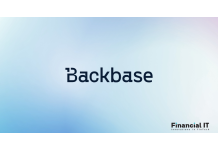63% Of SMBs Secure First-Ever Funding Through Embedded...
- 05.12.2025 11:55 am
Broken Beyond Excuse: PensionBee Calls On Government...
- 05.12.2025 10:15 am
Fuse Rebrands As Lorum To Rebuild Institutional...
- 05.12.2025 08:53 am
FinTech Wales Launches Its 2024/25 Annual Report and...
- 04.12.2025 10:45 am
10x Banking and Constantinople Win Partnership Award...
- 04.12.2025 10:15 am
YouLend and Qonto Launch Strategic Partnership to...
- 04.12.2025 09:35 am
Mambu Unveils 2026 Fintech Outlook Report, Exploring...
- 03.12.2025 08:15 am
Regnology Completes Acquisition of Wolters Kluwer’s...
- 01.12.2025 10:45 am
Backbase Partners with Unblu to Close the Gap Between...
- 01.12.2025 08:15 am
Britons Divided on Future of Pension Tax Relief as...
- 01.12.2025 08:05 am
Paysend Partners with JetBlue to Reward the Dominican...
- 28.11.2025 12:05 pm
MOIN Expands Strategic Partnership with Nium,...
- 28.11.2025 09:35 am






















